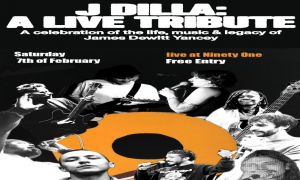Darius Jones & Matthew Shipp—Cosmic Lieder (AUM Fidelity, 2011) ****
ROVA Saxophone Quartet—Planetary (SoLyd Records, 2010) **** By Stanley Zappa
The play on words was unavoidable as both recordings touch on the galactic and vibrate with a dignity that “we" have come to expect only from the “masters" as recorded on the Deutche Grammaphon label. Both the Rova Saxophone Quartet's Planetary and Darius Jones and Matt Shipp's Cosmic Lieder are examples of the ever dimming line between formal European concert music and improvised music—indeed, here is an example when the term Free Jazz doesn't adequately describe the music.
The Rova saxophone quartet was founded in 1977. To give you some perspective, consider the Kronos Quartet was formed in 1973. Though both quartets have been together for roughly the same amount of time and both quartets are dedicated to the new, the Kronos Quartet boasts performances with artists as diverse as Pat Metheny, The Dave Mathews Band and Texas yodeler Don Walser. The Rova Saxophone Quartet's aesthetic trajectory is more focused and austere. Depth as opposed to scatter load.
The product of several concurrent decades of development and devotion, the combined musicality on Planetary, is something to be cherished. Those parts that are clearly being read, like Parallel Construction #2 are read flawlessly. Those for whom the sound of written order is important, this is an important album. The thoughtfully written parts are many. Those parts that are clearly improvised, as on the title track are a fulfilment of improvised music's promises. Then there are those parts where you can't tell if it's improvised or not. Those sublime moments marble Planetary, vastly outnumbering instances of occasionally overbearing compositionality.
The Rova Quartet could musically fit in a larger program of “Serious European Concert Music" just as easily as they could a “free jazz" festival. Could the same be said of Kronos?
Cosmic Lieder immediately brought to mind my favourite recording of Schuberts Die Winteriesse. Victor Braun is the Baritone and Antonin Kubalek is the pianist. (It's on the Dorian label and it's a five star performance in case you were wondering.) Though they are performing repertoire, they—they two of them combined—have a sound that is different than the sum of its parts. I think of that “sum" as a point on a graph, rather than on an axis. Fischer-Dieskau performed the same piece with Klaus Billing but created a different sound. Their two parts came up with a different “sum" than did the combination of Braun and Kubalek. It is important to remember that when we listen to music, we are listening to lives lived.
The sum of Jones and Shipp is no less glorious, sounding like a long standing musical relationship. Ironically, it isn't anywhere near as longstanding as Shipp's relationship with David S. Ware (for one)—and yet Shipp and Jones together function flawlessly.
Despite reminiscence of Schubert, Shipp's and Jones' harmonic sensibilities are clearly of this era—Motherboxxx makes that clear. It is Cosmic Leader's proportions, pacing and musical sentiment that are timeless and unanimous among the works we love in all music.
Shipp's playing favors harmonically luxury over virtuosity. Musical phrases are candid and direct without an ounce of noodling. For large segments, Shipps playing is so uncluttered it sounds “composed." As with Rova, the progressive consumer of formal European concert musicwould have to try hard not to admire and enjoy Shipp's playing on Cosmic Lieder.
Darius Jones has me most captivated when he steps outside of the tempered scale reality a la Giuseppi Logan and Joe Maneri. Those moments are sparce as with Shipp, much of what Jones plays could have been written. I'm thinking of Ultima Thule. There are of course also those moments where Jones playing defies notation—Multiverse for example—and those are the moments why we read and write for this blog. Jones covers all bases more than adequately.
If recorded music can point to anything other than itself, it could be that Planetary and Cosmic Lieder point to a re-imagining of the third stream—the ultimate fusion, that of improvisations vitality and formal European concert music's capital. Oh the farmer and the cowman should be friends...
Rova Saxophone Quartet : Bruce Ackley-soprano saxophone, tenor saxophone, Steve Adams-alto saxophone, Larry Ochs-tenor saxophone, Jon Raskin-bairtone and alto saxophone
Darius Jones & Matthew Shipp : Darius Jones—alto saxophone, Matthew Shipp—piano
ROVA Saxophone Quartet—Planetary (SoLyd Records, 2010) **** By Stanley Zappa
The play on words was unavoidable as both recordings touch on the galactic and vibrate with a dignity that “we" have come to expect only from the “masters" as recorded on the Deutche Grammaphon label. Both the Rova Saxophone Quartet's Planetary and Darius Jones and Matt Shipp's Cosmic Lieder are examples of the ever dimming line between formal European concert music and improvised music—indeed, here is an example when the term Free Jazz doesn't adequately describe the music.
The Rova saxophone quartet was founded in 1977. To give you some perspective, consider the Kronos Quartet was formed in 1973. Though both quartets have been together for roughly the same amount of time and both quartets are dedicated to the new, the Kronos Quartet boasts performances with artists as diverse as Pat Metheny, The Dave Mathews Band and Texas yodeler Don Walser. The Rova Saxophone Quartet's aesthetic trajectory is more focused and austere. Depth as opposed to scatter load.
The product of several concurrent decades of development and devotion, the combined musicality on Planetary, is something to be cherished. Those parts that are clearly being read, like Parallel Construction #2 are read flawlessly. Those for whom the sound of written order is important, this is an important album. The thoughtfully written parts are many. Those parts that are clearly improvised, as on the title track are a fulfilment of improvised music's promises. Then there are those parts where you can't tell if it's improvised or not. Those sublime moments marble Planetary, vastly outnumbering instances of occasionally overbearing compositionality.
The Rova Quartet could musically fit in a larger program of “Serious European Concert Music" just as easily as they could a “free jazz" festival. Could the same be said of Kronos?
Cosmic Lieder immediately brought to mind my favourite recording of Schuberts Die Winteriesse. Victor Braun is the Baritone and Antonin Kubalek is the pianist. (It's on the Dorian label and it's a five star performance in case you were wondering.) Though they are performing repertoire, they—they two of them combined—have a sound that is different than the sum of its parts. I think of that “sum" as a point on a graph, rather than on an axis. Fischer-Dieskau performed the same piece with Klaus Billing but created a different sound. Their two parts came up with a different “sum" than did the combination of Braun and Kubalek. It is important to remember that when we listen to music, we are listening to lives lived.
The sum of Jones and Shipp is no less glorious, sounding like a long standing musical relationship. Ironically, it isn't anywhere near as longstanding as Shipp's relationship with David S. Ware (for one)—and yet Shipp and Jones together function flawlessly.
Despite reminiscence of Schubert, Shipp's and Jones' harmonic sensibilities are clearly of this era—Motherboxxx makes that clear. It is Cosmic Leader's proportions, pacing and musical sentiment that are timeless and unanimous among the works we love in all music.
Shipp's playing favors harmonically luxury over virtuosity. Musical phrases are candid and direct without an ounce of noodling. For large segments, Shipps playing is so uncluttered it sounds “composed." As with Rova, the progressive consumer of formal European concert musicwould have to try hard not to admire and enjoy Shipp's playing on Cosmic Lieder.
Darius Jones has me most captivated when he steps outside of the tempered scale reality a la Giuseppi Logan and Joe Maneri. Those moments are sparce as with Shipp, much of what Jones plays could have been written. I'm thinking of Ultima Thule. There are of course also those moments where Jones playing defies notation—Multiverse for example—and those are the moments why we read and write for this blog. Jones covers all bases more than adequately.
If recorded music can point to anything other than itself, it could be that Planetary and Cosmic Lieder point to a re-imagining of the third stream—the ultimate fusion, that of improvisations vitality and formal European concert music's capital. Oh the farmer and the cowman should be friends...
Rova Saxophone Quartet : Bruce Ackley-soprano saxophone, tenor saxophone, Steve Adams-alto saxophone, Larry Ochs-tenor saxophone, Jon Raskin-bairtone and alto saxophone
Darius Jones & Matthew Shipp : Darius Jones—alto saxophone, Matthew Shipp—piano


























